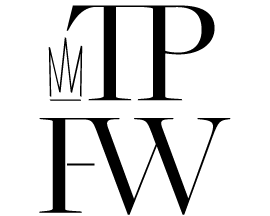Laura LingJournalistMill Valley, CAStory & Photos by Lauri Levenfeld
|
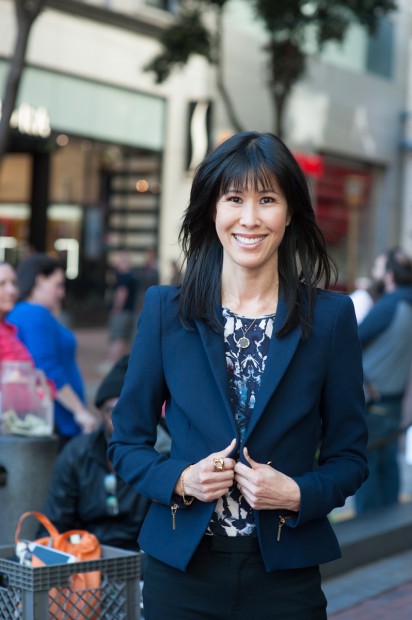 |
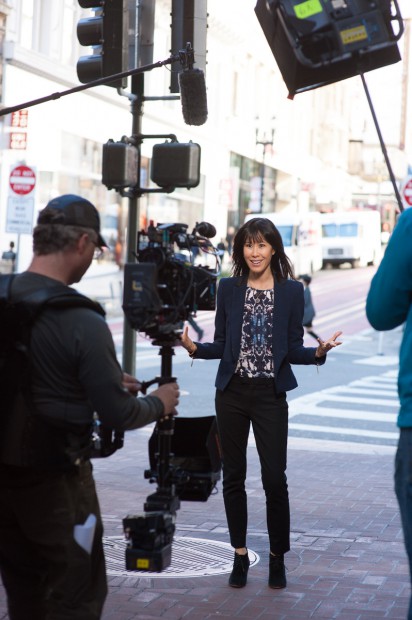 |
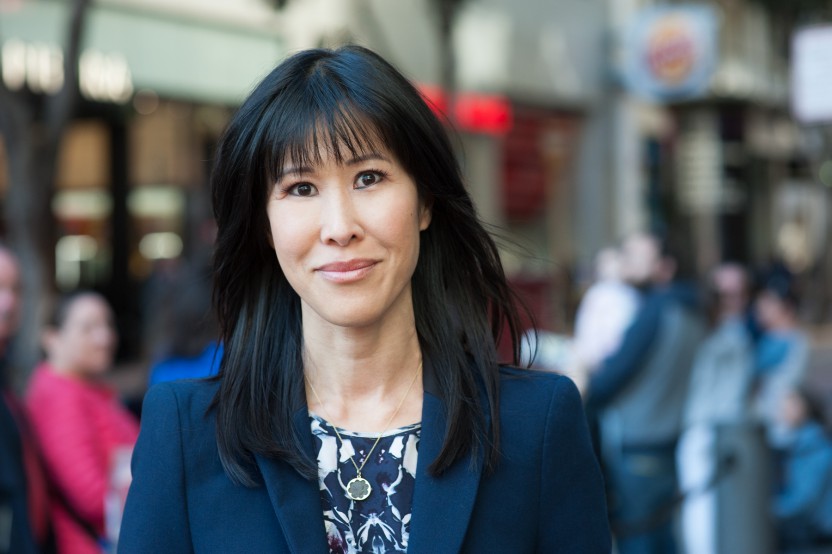 |
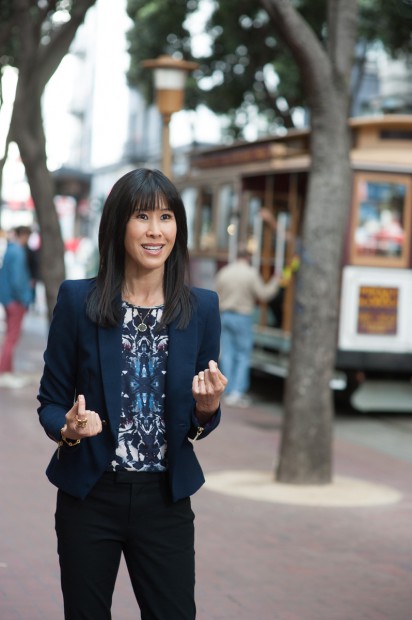 |
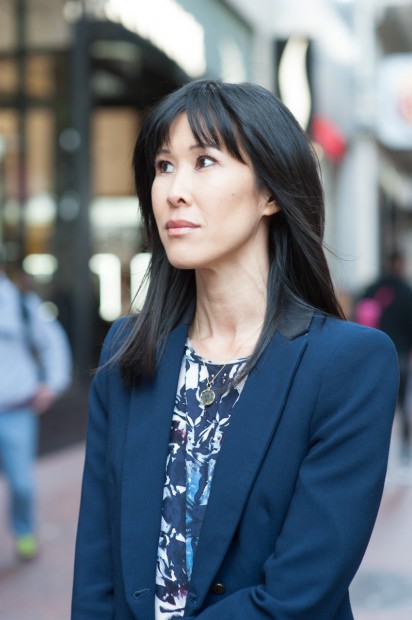 |
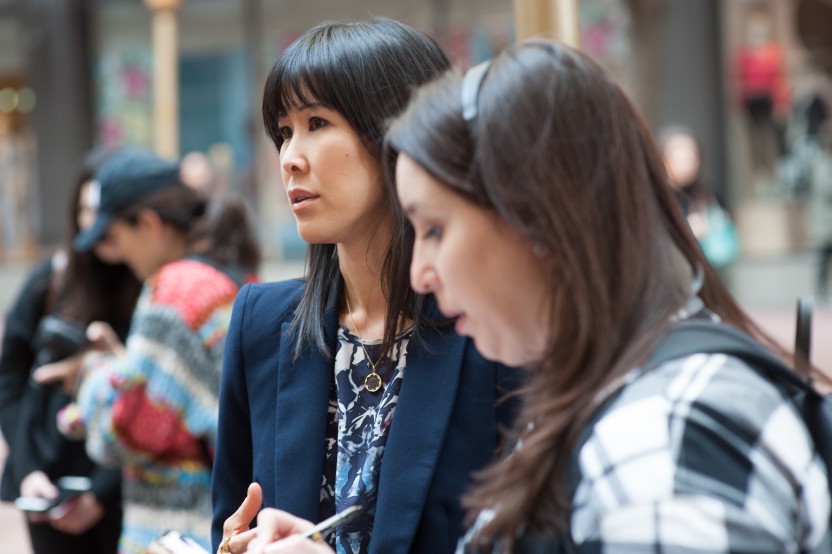 |
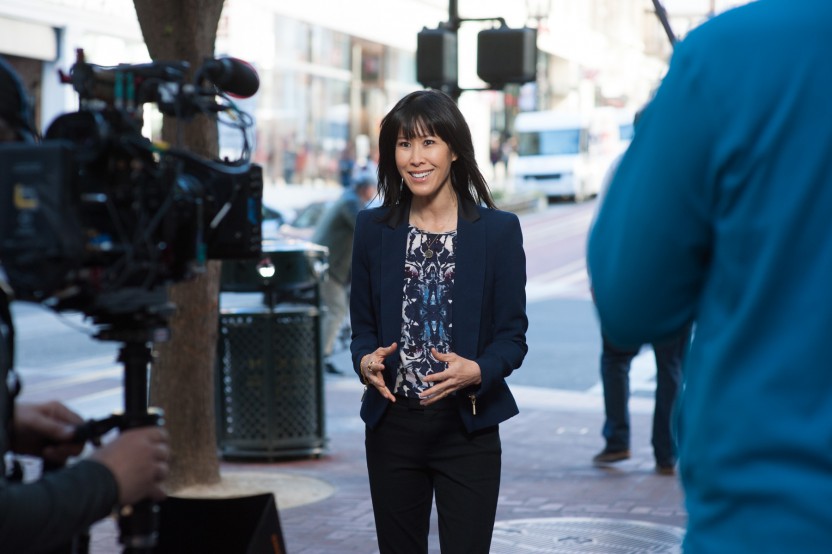 |
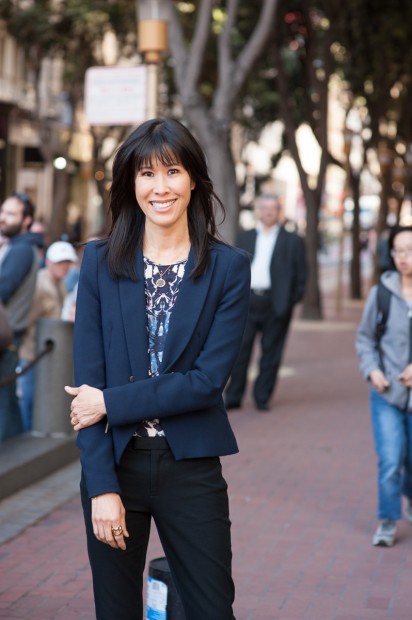 |
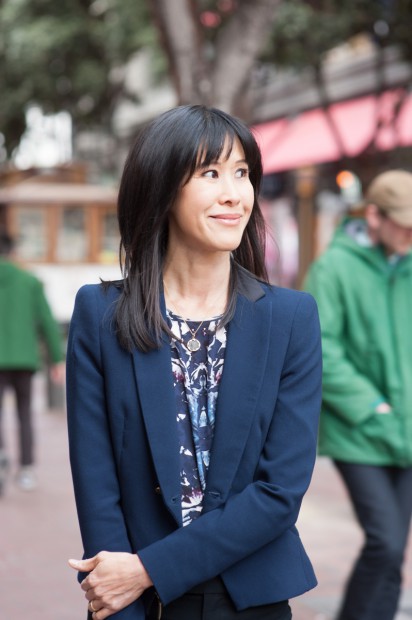 |
|
1.Who are you? What were you like as a child? I’m trying to juggle doing meaningful work and being a mom, the latter of which, is the most meaningful job I’ve ever had. My parents divorced when I was 4 and because of that, there was a bit of tension growing up. I think I tried to create as little drama as possible to keep the peace. I also grew up in a pretty non-diverse suburb outside of Sacramento, California, and so, being one of few Asians in my community, I just felt a little different and uncomfortable in my own skin. But I think it was because I grew up in this sort of cookie-cutter All-American community, that I became determined to see and explore the larger world around me.
2. When did Journalism become a passion for you? How did you get started? I’ve always loved writing and storytelling. After college I worked as a researcher for a writer for the LA Times. But watching my big sister, Lisa, travel the world and report on critical, unreported stories about the human condition is what really inspired me. I was so proud of her—that she could do this kind of work as a young, Asian American journalist, and speak to an audience of our generation.
3. Tell us about your relationship with your sister Lisa and how you both got into this adventurous business. Lisa and I are best friends, and we’ve always looked out for each other. I definitely followed in her footsteps. But we’ve also had the opportunity to work together on a few projects, which has been really special. And we always share a hotel room, which makes things less lonely, and better for the budget! Many years ago we were working together in Tibet and I got major altitude sickness on the first day. I was throwing my guts up in the bathroom and it was so comforting to have my sister there to look out for me. I’m not sure she felt the same way! |
4. In 2009 you were captured in Northern Korea and and held against your will for 140 days, how did this experience change how you show up daily? Well, I got pregnant pretty immediately after my return home, like probably that night, if you do the math. So my experience in captivity definitely made me even more appreciative of my family and made me want to start a family of my own. I practice gratitude more. It’s a nightly ritual for me. Before I go to sleep every night I think about something that happened in the day that I feel grateful for. It’s something I did while I was in captivity in North Korea and it’s something I continue to do to this day. It just puts everything in perspective and keeps me centered.
5. You are a lady always smiling who just wrapped a show for Discovery on Kindness…Tell us about the project. I felt so honored to be asked to work on a project about kindness. I mean, how cool is that? For the project, we looked at different stories of kindness and how each impacted both the beneficiary as well as the giver—the person performing the good deed or receiving the kind act. It shouldn’t come as a surprise that doing good is good for our bodies. There’s a professor at UC Berkeley, Dr. Dacher Keltner who is working on a study that looks at the health benefits of showing empathy and kindness. I actually got to participate in this study by being hooked up to various electrodes that tested my empathy levels. It was fascinating. We also looked at the potential for good deeds to spark a chain reaction, a contagion effect, and spread far and wide. You can now view the Power of Kindness.
6. What do you hope to achieve through the show? I hope it inspires people to remember the Golden Rule and start their own kindness movement. Because I think we can all agree that the world could benefit from a little more kindness these days. |
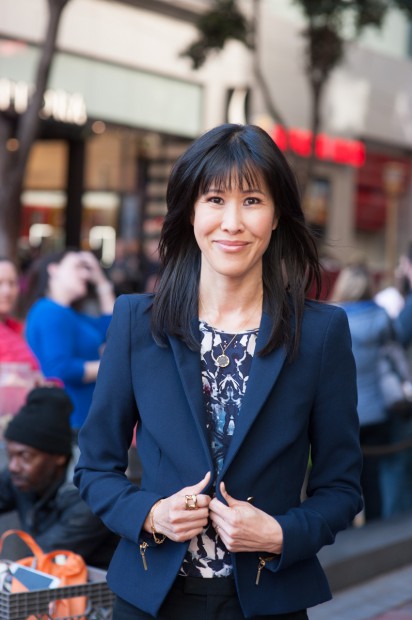 |
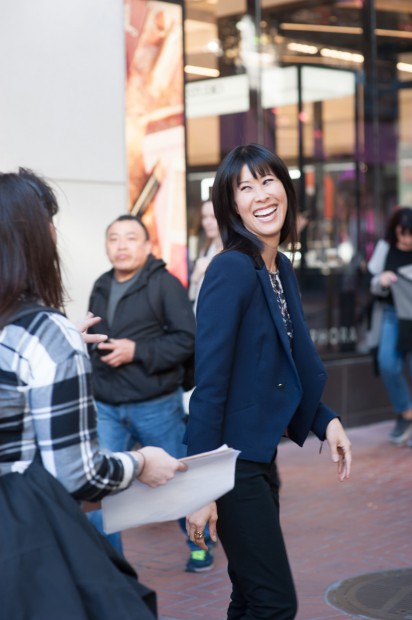 |
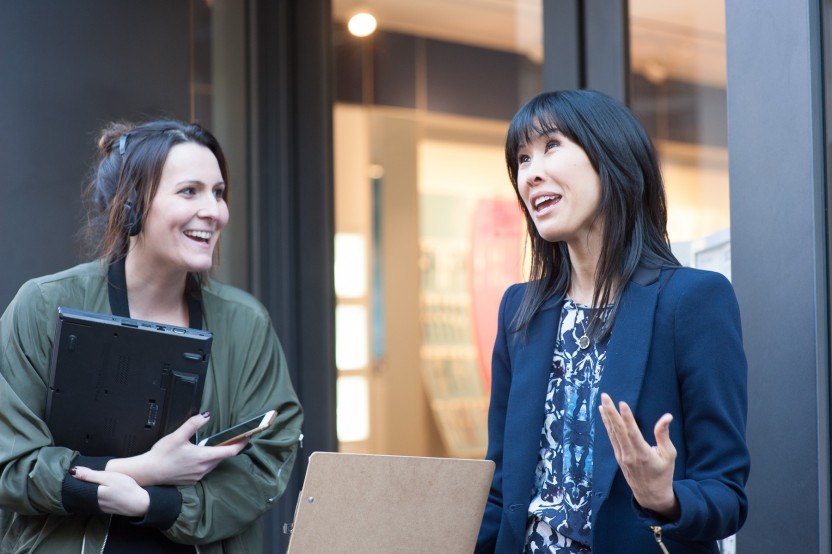 |
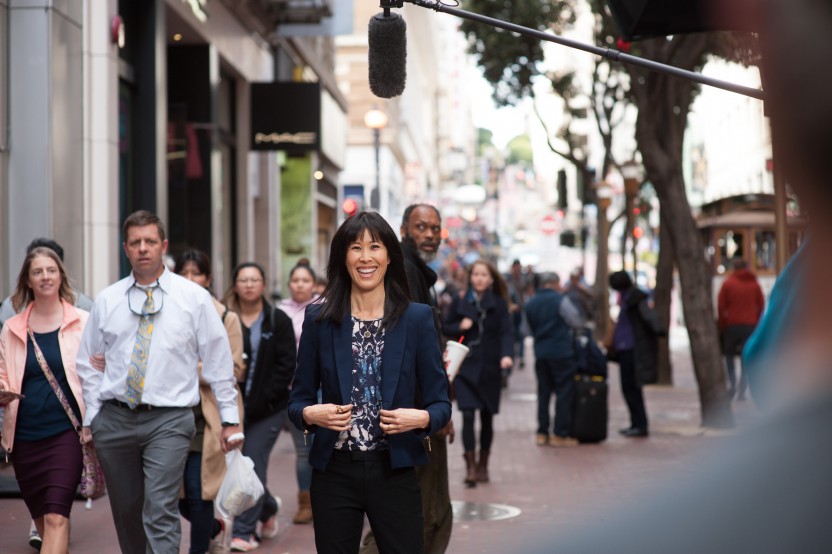 |
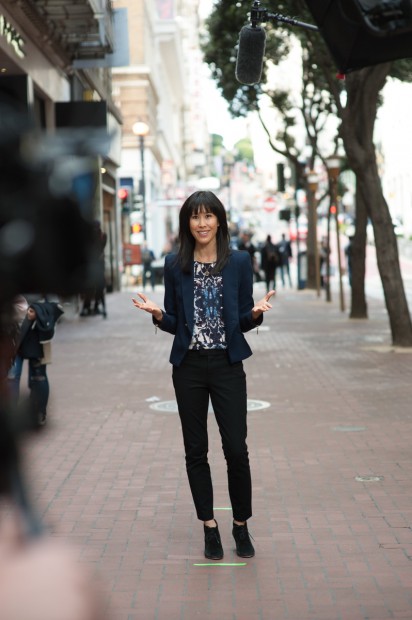 |
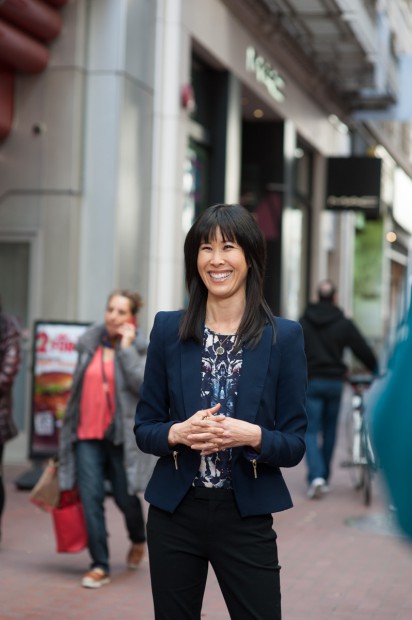 |
|
7. Who are your heroes, mentors or inspirations? Many of my heroes are the people I’ve interviewed over the years who have used their voices to create change. Like the young woman who was sexually assaulted in the military who spoke up for justice, or journalists in Mexico covering the drug war who continue to do their jobs despite being the target of violent cartels, to young women in the Middle East speaking out for equal rights. These people have shown me about courage in the face of adversity and they continue to inspire me each day.
8. You are a mother of two kids, a girl and a boy, what strengths and lessons do you hope to pass on to them? I think the biggest thing I hope to impart on my kids it to be kind. And I felt this way before I started working on the project for Discovery! When my daughter graduated from Kindergarten, I wrote her a letter to read after she graduates from elementary school. I wrote, “We hope you always live your life with love and kindness. Always remember the Golden Rule—do unto others as you would have them do unto you”.
9. Name the top three stories you have told that have developed you as a person/ journalist and why? There have been so many stories that have affected me as a person and changed my perspective on the world. As an associate producer very early on in my career, I was with my team in China where we followed a group of missionaries who had to worship in secret. While religion can be practiced in China, evangelizing outside of registered churches is illegal. So groups of Christians worship in secret. We visited a house in the Chinese countryside where people were praying in an underground room—the only entrance was a tiny stairway that was hidden behind a wooden bookshelf. In another town we walked through a field in the pitch black darkness of night. It was totally silent, until we came upon a barn that was filled with people singing hymns. Normally, you think of people going to Church on Sunday morning, but here were people sneaking across fields at night in order to worship. If caught, they faced imprisonment or worse. This story really opened my eyes to the risks people take for religious freedom and freedom in general. When I was working for the E! Network, I hosted an episode on teen suicide and depression. It was one of the more emotional stories I’ve ever worked on because I was looking at that issue through the lens of being a new mom (I had just given birth to my daughter, Li) and as someone who had once contemplated taking my own life during my captivity in North Korea. I was shocked to meet so many young people who had felt depressed but they were too embarrassed to talk about it, because to them, it seemed like an admission of failure. |
It was a reminder to me of the intense pressures faced by teenagers, who are experiencing certain emotions for the very first time. As a mom, this story struck me to the core. We need to do more to support young people and their emotional well being. Our story, where we met teens from all walks of life, was meant to let them know that they are not alone and that there is help. While working on a story about the energy crisis in sub-saharan Africa, where hundreds of millions of people are living without access to reliable energy sources, I saw how girls are unable to go to school because they have to help their mothers search for wood and other sources of fuel, how women often give birth in darkness, which can lead to fatal complications, how women must cook indoors using firewood inhaling harmful toxins. It’s clear that women and girls are disproportionately impacted by issues of poverty and that by lifting up girls, everyone benefits.
10. How has gender played into your career as a journalist? Advantages and challenges? I’ve been in male-dominated societies where men have been very skeptical of me, sometimes not taking me seriously. I find that just being myself, showing a genuine interest in their lives and situations, and approaching situations with integrity and respect can go a long way in breaking down barriers and preconceived notions. On the other hand, I think some people have been more inclined to open up to me, perhaps because I’m a woman. I’d like to think it’s because they feel they can relate to me. Like so many women speaking out as part of the #MeToo movement, I’ve faced harassment in the workplace. I once had a boss who would make inappropriate remarks, which made me feel very uncomfortable. I regret not speaking up, but this was earlier on in my career and I felt powerless. I didn’t have the courage and wisdom that often comes with experience. It’s encouraging to see how this groundswell of voices is changing things so that hopefully my daughter will not have to go through the things I went through. In the meantime, she’s hoping to earn a black belt in Taekwondo. She’s only 8, but, I don’t think anyone’s going to mess with her!
11. What’s next for Laura Ling? I just finished working on a podcast that launched this week called Everyday Bravery. It’s a series about finding the courage within ourselves to overcome our biggest challenges. The stories are really powerful and I hope listeners are inspired to find their own everyday bravery. The podcast also speaks to the power of mentors. In each episode we pair people up with a mentor to help with that added boost of encouragement or advice—something I think we can all use when times are tough. |
